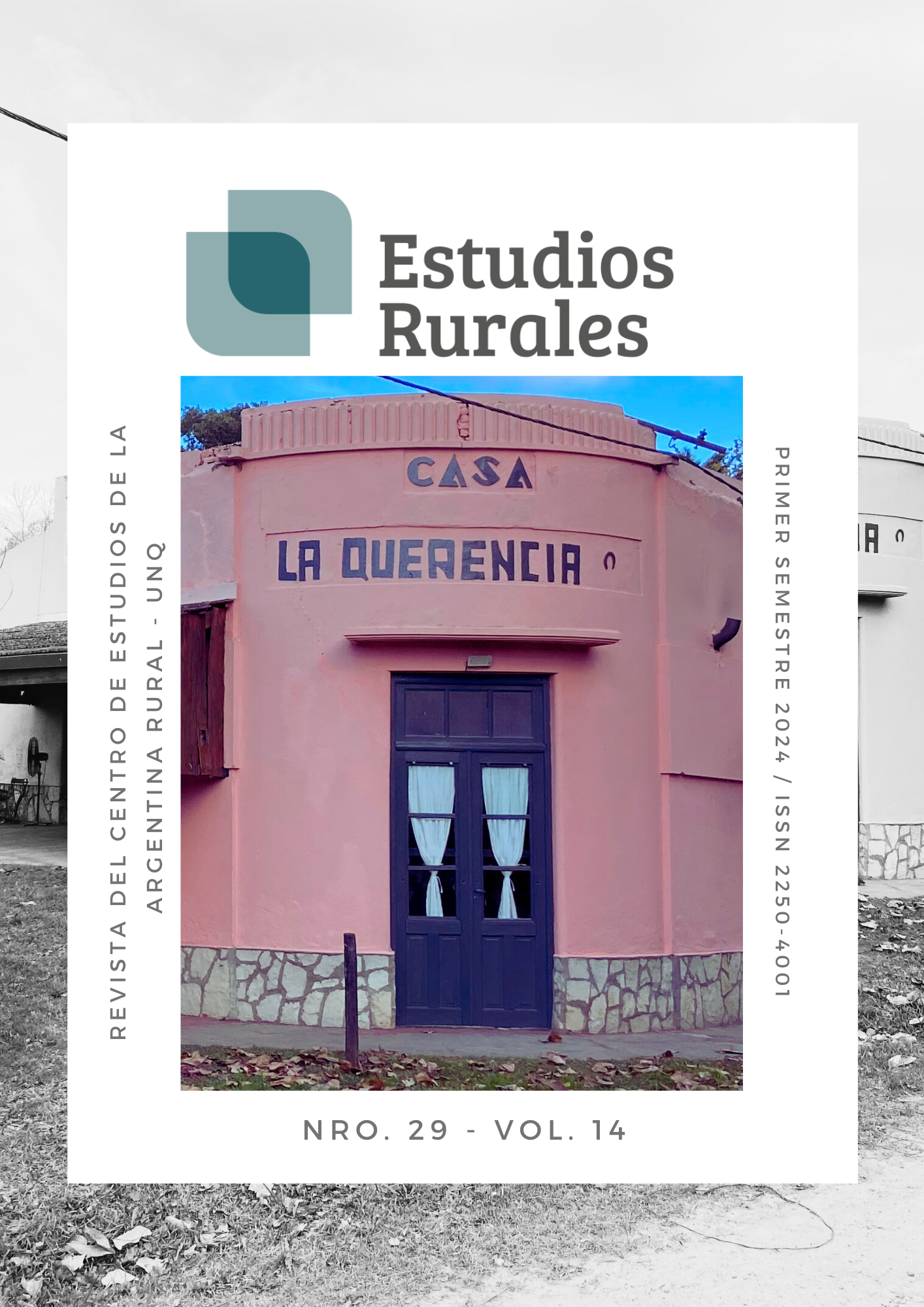Eradication of ranch schools and ranch dwellings: Production of space as colonial pedagogy.
DOI:
https://doi.org/10.48160/22504001er29.513Keywords:
Public policy, rural habitat, coloniality, production of spaceAbstract
This article examines the relationship between the eradication of traditional rural schools and houses in Argentina and their role as a colonial pedagogical device in space production. Three recent milestones in Argentine history are analyzed to contribute to a genealogy of this device: the Rural Education Expansion and Improvement Program, developed during the last civic-military dictatorship in Argentina; the scope of the Federal Educational Pact regarding rural schools, enacted in 1994; and the scope of the Replacement of Precarious Housing and Eradication of Chagas Disease Plan, implemented in Córdoba between 2009 and 2019.
Following Henri Lefebvre's perspective, the dimensions of conceived, perceived, and lived space are examined, where the State and the market impose their influences on space configuration. Additionally, the concept of "device," according to Foucault and Deleuze, is introduced as a fundamental tool to understand how space production acts as a process of teaching and transmitting colonial values. Coloniality is approached as a matrix that influences the regulation, normalization, and production of "truths" about territories and communities, establishing a pedagogy that reinforces the marginalization of specific groups.
Altogether, this article highlights how these policies of eradicating and replacing vernacular architectures are part of a colonial pedagogical device that impacts the perception and use of rural space, challenging local practices and knowledge.


